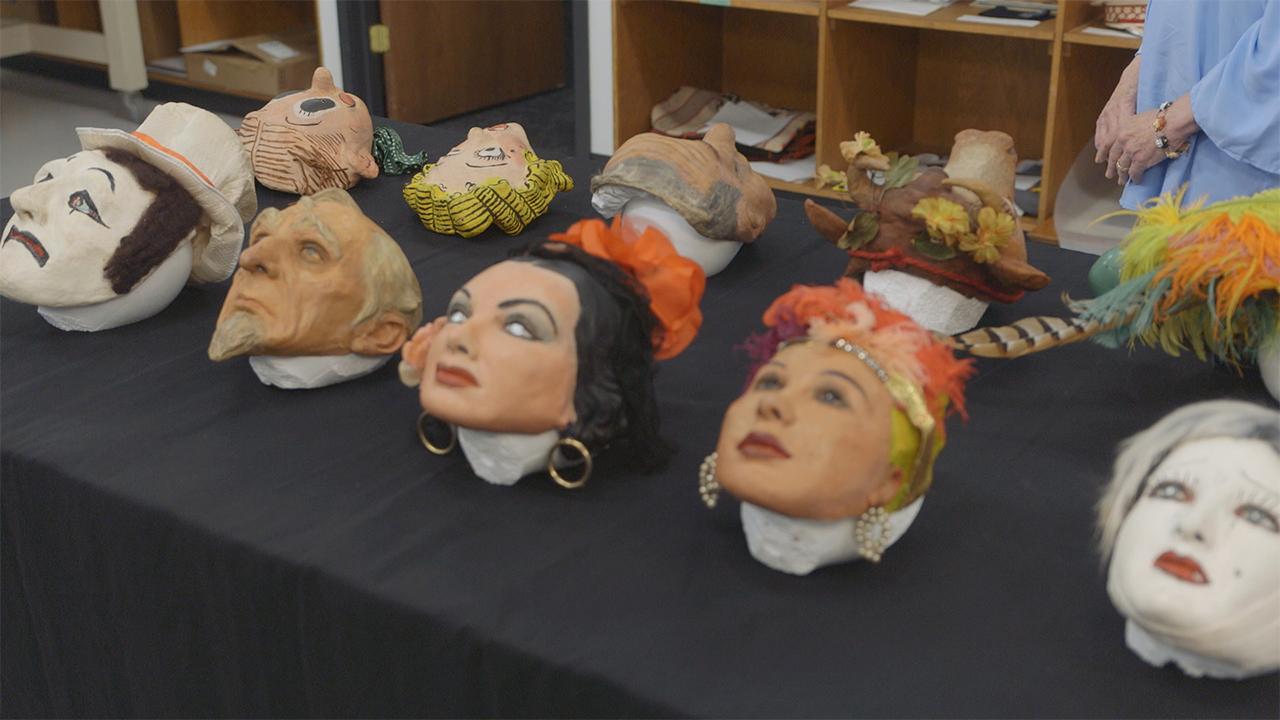Artist’s daughter 'saving face' with strange inheritance
Karen Schnitzspahn grew up feeling she was being watched -- by the likes of Alfred Hitchcock, Carmen Miranda, Clark Gable, Ulysses S. Grant and Benito Mussolini.
That’s because her mother, Kari Hunt, practiced the venerable art of mask-making and filled their home with hundreds of paper-mache faces.
“As a little girl, it was creepy. I imagined I was hearing noises at night, like they were coming to life,” Schnitzspahn said in the latest episode of “Strange Inheritance” with Jamie Colby, which premieres on FOX Business Network Monday at 9:30 p.m. ET.
Hunt learned mask masking from artist Doane Powell, who in 1948 literally wrote the book on the topic.
In the early 1900s, Powell had trained in classical sculpture in Paris. He then worked as a political cartoonist for the Omaha Daily Bee in Nebraska, before moving to New York in the 1920s to try mask making.
“We’re not talking about Halloween costumes,” said Chicago-based mask maker David Knezz, “but a timeless art form going back to the dawn of civilization.”
“It seems there’s a universal need for masks for different ceremonies, to ask the spirits for help in war, courage and fertility,” Knezz explains in the program.
Powell recast the art form for a 20th century audience by focusing on the newsmakers of his day, including Adolf Hitler and Winston Churchill.
“It was an extension of his cartooning, because political cartoonists exaggerate for fun and he was able to do that with his masks,” Knezz said.
Powell’s artistry is still admired by today’s mask makers, like Knezz and Jordu Schell, whose movie credits include “Avatar”, “300” and “Alien Resurrection.”
“All mask making has a similar lineage, and that is to create a memorable character that people believe,” Schell tells Colby.
Powell not only taught Hunt to make her own masks, but he also left her his own when he died in 1951. A year later, Hunt made their faces famous by striking a deal to feature them on the television game show “Masquerade Party”.
When Hunt died in 1999, Schnitzspahn inherited all the masks made by her mother and Powell. Unsure of what to do with the unconventional works of art, she packed them away in closets throughout her home.
“I started to feel guilty. I thought about how much my mother loved the masks,” Schnitzspahn said. “I needed to do something worthwhile with them.’”
She reached out to Laura Mooney, a senior curator at the Nebraska Historical Society.
“I was just fascinated and thought, ‘Wow, these are really incredible,’” Mooney said. “Everyone here was convinced that we needed this collection.”
The museum spent more than three years restoring the masks – one nose, ear and mustache at a time. The exhibit opened to the public in 2017.




















